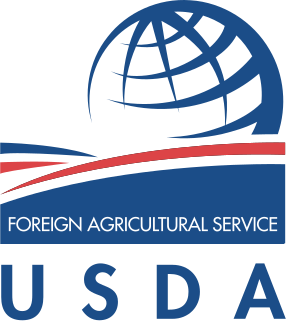Related Research Articles

Iraq’s economy is dominated by the oil sector, which has provided about 99.7% of foreign exchange earnings in modern times. In the 1980s, financial problems caused by massive expenditures in the eight-year war with Iran and damage to oil export facilities by Iran led the government to implement austerity measures, borrow heavily, and later reschedule foreign debt payments; Iraq suffered economic losses of at least $80 billion from the war. After the end of hostilities, in 1988, oil exports gradually increased with the construction of new pipelines and restoration of damaged facilities.

Import substitution industrialization (ISI) is a trade and economic policy which advocates replacing foreign imports with domestic production. ISI is based on the premise that a country should attempt to reduce its foreign dependency through the local production of industrialized products. The term primarily refers to 20th-century development economics policies, although it has been advocated since the 18th century by economists such as Friedrich List and Alexander Hamilton.

Agricultural policy describes a set of laws relating to domestic agriculture and imports of foreign agricultural products. Governments usually implement agricultural policies with the goal of achieving a specific outcome in the domestic agricultural product markets. Outcomes can involve, for example, a guaranteed supply level, price stability, product quality, product selection, land use or employment.
An agricultural subsidy, is a government incentive paid to agribusinesses, agricultural organizations and farms to supplement their income, manage the supply of agricultural commodities, and influence the cost and supply of such commodities. Examples of such commodities include: wheat, feed grains, cotton, milk, rice, peanuts, sugar, tobacco, oilseeds such as soybeans and meat products such as beef, pork, and lamb and mutton.
Trade negotiators generally refer to Article 13 of the World Trade Organization's Agreement on Agriculture as the Peace Clause. Article 13 holds that domestic support measures and export subsidies of a WTO Member that are legal under the provisions of the Agreement on Agriculture cannot be challenged by other WTO Members on grounds of being illegal under the provisions of another WTO agreement.

The Cairns Group is an interest group of 19 agricultural exporting countries, composed of Argentina, Australia, Brazil, Canada, Chile, Colombia, Costa Rica, Guatemala, Indonesia, Malaysia, New Zealand, Pakistan, Paraguay, Peru, the Philippines, South Africa, Thailand, Uruguay, and Vietnam.
Trade can be a key factor in economic development. The prudent use of trade can boost a country's development and create absolute gains for the trading partners involved. Trade has been touted as an important tool in the path to development by prominent economists. However trade may not be a panacea for development as important questions surrounding how free trade really is and the harm trade can cause domestic infant industries to come into play.

The Foreign Agricultural Service (FAS) is the foreign affairs agency with primary responsibility for the United States Department of Agriculture's (USDA) overseas programs—market development, international trade agreements and negotiations, and the collection of statistics and market information. It also administers the USDA's export credit guarantee and food aid programs and helps increase income and food availability in developing nations by mobilizing expertise for agriculturally led economic growth. In 2003, FAS began to return to a long-abandoned role in national security. The FAS mission statement reads, "Linking U.S. agriculture to the world to enhance export opportunities and global food security", and its motto is "Linking U.S. Agriculture to the World".
The Commodity Credit Corporation (CCC) is a wholly owned United States government corporation that was created in 1933 to "stabilize, support, and protect farm income and prices". The CCC is authorized to buy, sell, lend, make payments, and engage in other activities for the purpose of increasing production, stabilizing prices, assuring adequate supplies, and facilitating the efficient marketing of agricultural commodities.
The Agreement on Agriculture (AoA) is an international treaty of the World Trade Organization. It was negotiated during the Uruguay Round of the General Agreement on Tariffs and Trade, and entered into force with the establishment of the WTO on January 1, 1995.

Roughly one-third of Iran's total surface area is suited for farmland, but because of poor soil and lack of adequate water distribution in many areas, most of it is not under cultivation. Only 12% of the total land area is under cultivation but less than one-third of the cultivated area is irrigated; the rest is devoted to dryland farming. Some 92 percent of agro products depend on water. The western and northwestern portions of the country have the most fertile soils. Iran's food security index stands at around 96 percent.
In different administrative and organizational forms, the Food for Peace program of the United States has provided food assistance around the world for more than 50 years. Approximately 3 billion people in 150 countries have benefited directly from U.S. food assistance. The Office of Food for Peace within the United States Agency for International Development (USAID) is the U.S. Government's largest provider of overseas food assistance. The food assistance programming is funded primarily through the Food for Peace Act. The Office of Food for Peace also receives International Disaster Assistance Funds through the Foreign Assistance Act (FAA) that can be used in emergency settings.
The Ministry of Food Processing Industries (MOFPI) is a ministry of the Government of India responsible for formulation and administration of the rules and regulations and laws relating to food processing in India. The ministry was set up in the year 1988, with a view to develop a strong and vibrant food processing industry, to create increased employment in rural sector and enable farmers to reap the benefits of modern technology and to create a surplus for exports and stimulating demand for processed food. The ministry is currently headed by Harsimrat Kaur Badal, a Cabinet Minister

Agriculture in Colombia refers to all agricultural activities, essential to food, feed, and fiber production, including all techniques for raising and processing livestock within the Republic of Colombia. Plant cultivation and livestock production have continuously abandoned subsistence agricultural practices in favour of technological farming resulting in cash crops which contribute to the Economy of Colombia. The Colombian agricultural production has significant gaps in domestic and / or international human and animal sustenance needs.
The agricultural policy of the United States is composed primarily of the periodically renewed federal U.S. farm bills.

Colin A. Carter is Professor of Agricultural and Resource Economics at the University of California, Davis. His research/teaching interests include international trade, futures markets, and commodity markets.

The Food, Agriculture, Conservation, and Trade (FACT) Act of 1990 — P.L. 101-624 was a 5-year omnibus farm bill that passed Congress and was signed into law.
An agricultural attaché is a diplomat who collects, analyzes, and acts on information on agriculture, agribusiness, food, and other related spheres in a foreign country or countries. Agricultural attachés may be directly employed by the sending country's agriculture ministry, or they may be employed by the foreign ministry. Typical activities of an agricultural attaché include reporting on crop conditions, food availability, domestic agricultural policy and the foreign trade outlook in agricultural commodities; negotiating food aid agreements and agricultural credit lines; implementing agricultural technical assistance programs; facilitating professional contacts, exchanges, and technology transfer; assisting in negotiating bilateral and multilateral trade agreements; and promoting the exports of agricultural and food products. In many cases, agricultural attachés may also bear responsibility for issues related to the environment, food security, food safety, fisheries, forestry, and indeed anything related to rural areas and the rural economy.

The Ministry of Commerce of Iran was the main organ of the Government in charge of the regulation and implementation of policies applicable to domestic and foreign trade. This includes:

The Department of Agriculture, Fisheries and Forestry (DAFF) was an Australian government department that existed between 1998 and 2013, when it was renamed as the Department of Agriculture. DAFF's role was to develop and implement policies and programs that ensure Australia's agricultural, fisheries, food and forestry industries remained competitive, profitable and sustainable.
References
![]()

The Congressional Research Service (CRS), known as Congress's think tank, is a public policy research arm of the United States Congress. As a legislative branch agency within the Library of Congress, CRS works primarily and directly for Members of Congress, their Committees and staff on a confidential, nonpartisan basis.